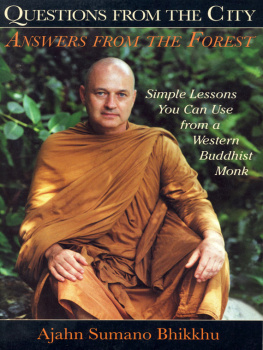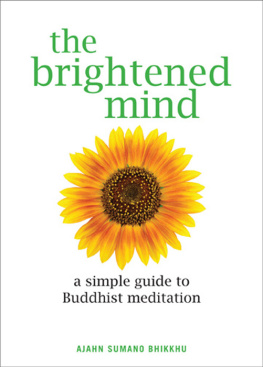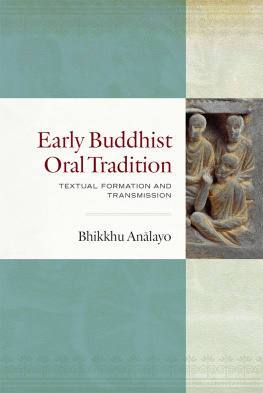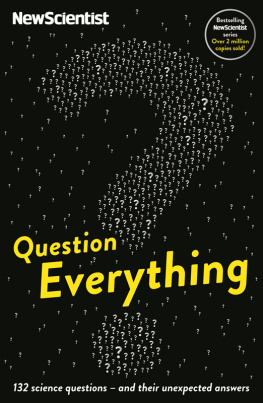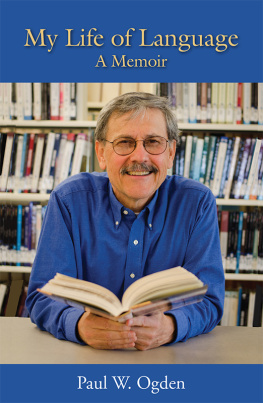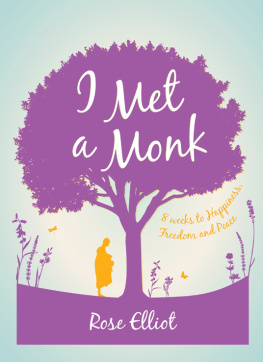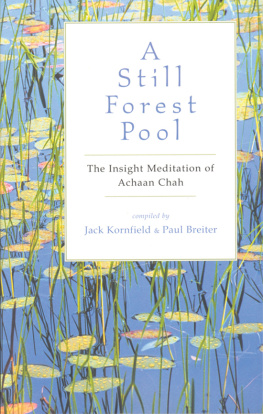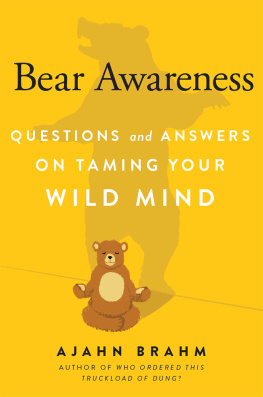Questions from the City,
Answers from the Forest
Questions from the City,
Answers from the Forest
Simple Lessons You Can Use
from a Western Buddhist Monk

Ajahn Sumano Bhikkhu

Learn more about Ajahn Sumano Bhikkhu and his work at http://www.youtube.com/watch?v=1oCgGtXED0I&feature=related
Find more books like this at www.questbooks.net
Copyright 1999 by Ajahn Sumano Bhikkhu
First Quest Edition 1999
Quest Books
Theosophical Publishing House
PO Box 270
Wheaton, IL 60187-0270
Without limiting the rights under copyright reserved above, no part of this publication may be reproduced, stored in or introduced into a retrieval system, or transmitted, in any form, or by any means (electronic, mechanical, photocopying, recording, or otherwise), without the prior written permission of the publisher of this book.
The scanning, uploading, and distribution of this book via the Internet or via any other means without the permission of the publisher is illegal and punishable by law. Please purchase only authorized electronic editions, and do not participate in or encourage electronic piracy of copyrighted materials.
While the author has made every effort to provide accurate telephone numbers and Internet addresses at the time of publication, neither the publisher nor the author assumes any responsibility for errors or for changes that occur after publication. Further, the publisher does not have any control over and does not assume any responsibility for author or third-party websites or their content.
Library of Congress Cataloging-in-Publication Data
Ajahn Sumano, Bhikkhu.
Questions from the city, answers from the forest: simple lessons you can use from a Western Buddhist monk / Ajahn Sumano Bhikkhu.
p. cm.
ISBN 978-0-8356-0774-2
1. Religious lifeBuddhism.
BQ5395.A33 1999
ISBN for electronic edition, e-pub format: 978-0-8356-2089-5
4 3 2 1 * 99 00 01 02 03 04 05
Introduction
T he questions and answers in this book have been taken from dozens of journals and diaries compiled during my twenty years of monastic practice. The questions originated from the hearts of other spiritual seekers whom I have happened to meet along the way. The questions were directed to me, and I responded to them as best as I could, treating each with respect, and knowing that if my mind is empty, I will be free to respond to the essence of the question and the need of the questioner in that moment.
Looking back, I recognize the truth that sincere inquiry always sparks our movement toward truth and compassion. Deep questions that arise naturally in the process of lifes unfolding signal the manifestation of the very energy through which we grow further. We would be arrogant to believe that we can proceed far without pondering the important questions life asks of us.
How did my karma bring me the opportunity to answer such questions? And how did I come to this place? And why did I come?
I was born in Chicago in 1940. My family had Jewish roots, though a mixed ethnic heritage. Our neighbors were mostly CatholicItalians, Poles, and Irish. It was an interesting experience to grow up in a predominantly Catholic neighborhood at that time. An undercurrent of anti-Semitism was always lurking about, which generated confusion in the minds of my friends and myself. The heart of the problem was that since we were not aware that there was any difference between being a Jew and not a Jew, we couldnt understand what was wrong with being one.
Two significant experiences came out of that somewhat confused identity. When I was a little boy, my grandfather, who spoke only Russian and Yiddish, took me regularly to a tiny, un-heated Orthodox synagogue. There I would be squashed between two gigantic, bearded old men garbed in heavy, full-length black woolen coats, with skullcaps on their heads and prayer shawls over their shoulders. The mingled smells of perspiration and wool and adult bodies moving in prayer were at once awful and wonderful. Being wedged in there between these old men, who were alternately sitting and nodding, half-bowing and standing, touched me profoundly and connected me to something safe and beautiful. After passing through all the business of my youth and adolescence, I would search all over the world for similar mystical experiences.
The second important experience that has remained with me was the intuitive understanding that to be a Jew was to be a person who seeks God. Being a member of the chosen people meant that one had the authority and permission to do that. I also knew, even if it was heretical to think this, that everyone was a Jew in this regard and that searching for God was a sign that one was chosen. For me, being a Jew was about not a religion but a calling; being chosen meant that God was the priority in ones life. Later, I knew enough to express this insight in Buddhist language: to be chosen meant that one had arrived, through unfathomable lifetimes spent in the service of goodness, at a lifetime in which one would have the opportunity to seek and the sensitivity to develop that positive potential.
I completed grade school and high school in an ordinary way. From the age of ten until my teen years, I was encouraged and groomed to become an amateur boxer by our neighbors, who were boxing promoters and managers. While they watched prominent fighters work out in the gym, they would assign some jaded (and usually loopy, punch-drunk) guy to give me lessons. I fought in some Golden Gloves events, managing to win a few. The other sport in which I invested time was bowling. I believe my classmates and their bowling fathers still remember me as the kid who bowled the highest game in the junior league: 277. For ten years, that record stood as the highest score for bowlers under eighteen across the country.
A third significant experience occurred in my teen years. One day, when I was fourteen, I noticed a carousel of paperback books in a drug store. I had never seen books displayed like that before. At that age I didnt go to bookstoresthough I frequented school libraries and read more than anyone I knewso this was the first rack of books I had encountered. My eyes went right to three books on Buddhism: one by Alan Watts, another by Christmas Humphreys, and a third by D. T. Suzuki. They were inexpensive paperbacks, so I bought them all. I read these books six or seven times each within a month, missing a week of school in the process. I was enthralled. They confirmed what I intuited to be the nature of the world. But in the turbulent years that followed, when hormones began turning my attention to school proms, clothes, cars, and the like, this spark of spiritual interest was subdued. It wouldnt be reignited for fifteen years.
In college, first at the University of Illinois and later at the University of Miami and DePaul University, I followed the directions of my family and high school advisors and spent years studying only things that I wasnt interested in, including three years of law school. Back in Chicago after a year of service in the Naval Reserve, I began working in real estate. I fully expected that if I applied myself to the pursuit of success and money, hard work and dedication would pay off handsomely. I married, my new wife and I settled into a comfortable life, and we lived happily ever afterthat is, for about four years. We had no childrenwe were the children.
Next page
